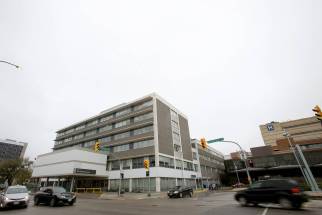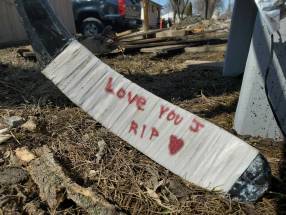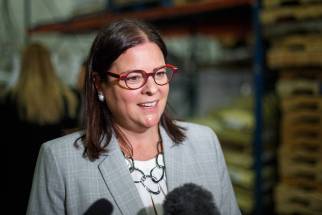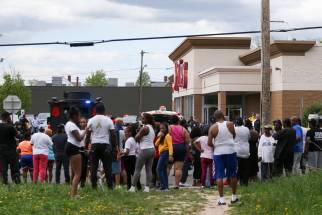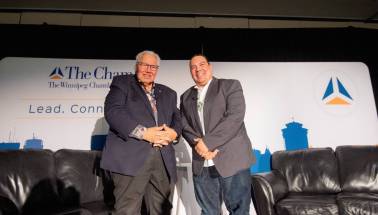Calling the Chamber to action Murray and Niigaan Sinclair explain the importance of reconciliation to city’s business elite
Read this article for free:
or
Already have an account? Log in here »
To continue reading, please subscribe:
Monthly Digital Subscription
$19 $0 for the first 4 weeks*
- Enjoy unlimited reading on winnipegfreepress.com
- Read the E-Edition, our digital replica newspaper
- Access News Break, our award-winning app
- Play interactive puzzles
*No charge for four weeks then billed as $19 plus GST every four weeks. Offer only available to new and qualified returning subscribers. Cancel any time.
Read unlimited articles for free today:
or
Already have an account? Log in here »
Hey there, time traveller!
This article was published 18/05/2022 (952 days ago), so information in it may no longer be current.
In former senator Murray Sinclair’s early days as a lawyer, his peers often wouldn’t make room for him at the table.
Once at court, he was asked — in front of his young son Niigaan — where his lawyer was. A now adult Niigaan shared the story, and a stage, with his Anishinaabe dad at a Winnipeg Chamber of Commerce luncheon Thursday.
“When you walk into a room that’s filled with strangers not of your colour, you feel very vulnerable, and you feel very exposed, and you hesitate to stand up for yourself,” Murray, who was Manitoba’s first Aboriginal judge, told the crowd.
“The worst part is when they all turn and look at you. And then you know in your heart what they’re thinking, and what they’re thinking is, ‘Who the hell is this?’”
.jpg?w=1000)
The father-son duo spoke about reconciliation to a crowd of over 600 business professionals — the largest Winnipeg Chamber event since COVID-19 began, excluding state of city and province addresses.
Understanding and building relationships with Indigenous people is crucial in the corporate world, the Sinclairs said.
Indigenous people make up Manitoba’s fastest growing population. They’ll become bigger portions of customers and employees.
One in five Manitobans could be Indigenous in 2041, according to a 2021 Statistics Canada report.
“You cannot imagine working in Manitoba without Indigenous peoples,” said Niigaan, a Native studies professor at the University of Manitoba and Free Press columnist.
Businesses who fail to incorporate reconciliation will get left behind, he added.
“(Indigenous people) will set up their own businesses because they’re not happy with your business, and they’ll be competing with you, or they’ll be calling to enter in partnerships with them,” Murray said.
Worker retention is the biggest hurdle for employers trying to expand their pool of Indigenous staff, according to Loren Remillard, the Winnipeg Chamber of Commerce’s president.
“One of the responses (companies) hear back is, ‘You need to create a more welcoming environment for Indigenous employees,’” Remillard said.
Some leaders struggle to make changes.
“What does (a welcoming environment) look like in a practical term?” Remillard said.
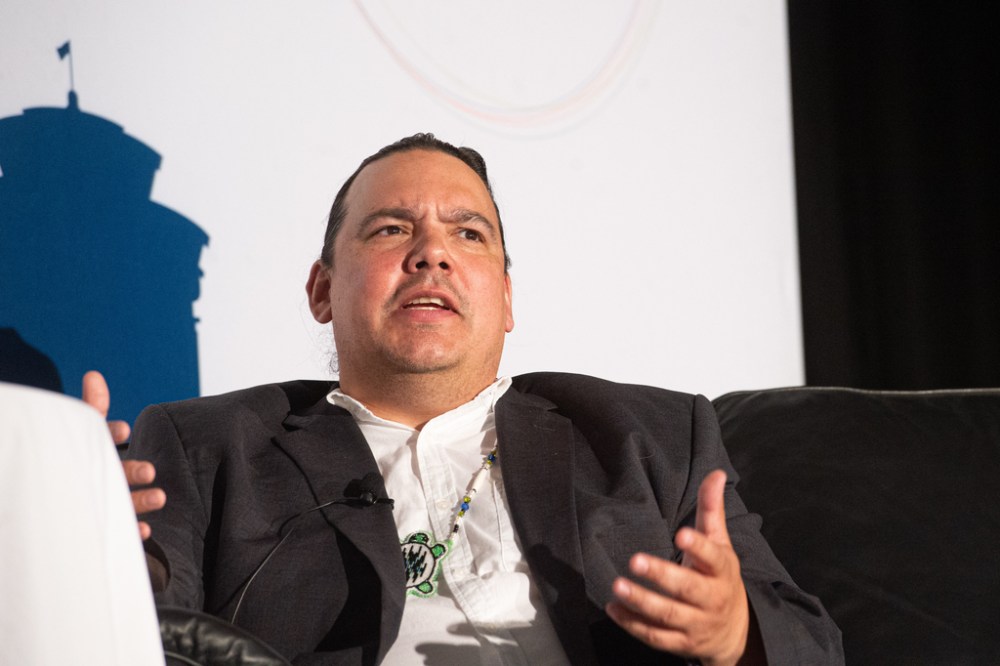
The Sinclairs pointed to Truth and Reconciliation Commission of Canada Call to Action 92. Murray led the historic commission.
Call to Action 92 instructs businesses to consult with Indigenous groups, to educate staff on Indigenous laws and culture, and to adopt the United Nations Declaration on the Rights of Indigenous Peoples as a reconciliation framework.
Then, it asks companies to incorporate the TRC Calls to Action in “all things that you do,” Niigaan said.
“It is to embody within all of your processes in your workplace,” he said.
It means allowing Indigenous staff to take holidays to attend a Sundance or potlatch ceremony. It means incorporating Indigenous worldviews in policies and decisions.
“The worst kind of racism is unconscious racism,” Murray said. “(That’s) where you do not even know that you are doing something, or you are following a practice or following a policy or enacting policies which are based upon Western concepts of doing things.”
Reconciliation requires understanding before change can happen, the Sinclairs said. It’s learning about Canada’s history, intergenerational trauma and Indigenous values.
“The reason we do anything, frankly, is to be a better Indigenous person,” Niigaan said.
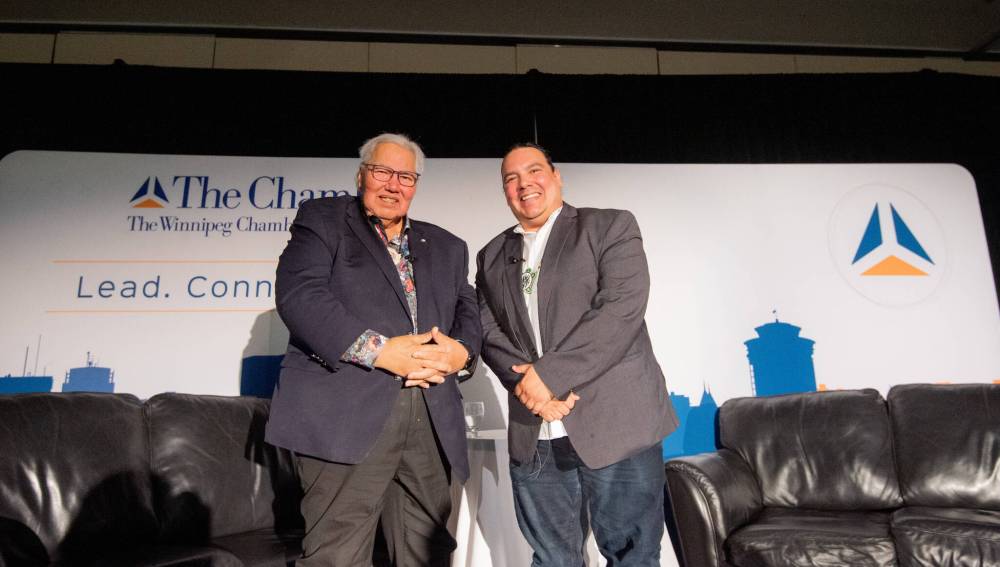
Anishinaabe teachings include being a better husband, wife, brother, cousin and grandchild, Murray said.
Caring for the earth is another focal point, said Niigaan.
“Once you have awareness, then you can start to develop an action plan,” Murray told the crowd.
Inclusivity is blossoming across the country, both father and son noted — there are far more Indigenous judges than when Murray first started; Niigaan’s daughter’s friends asked her to wear her jingle dress to school.
Still, there’s work to do.
“The business community is committed to truth and reconciliation and is going to take the steps needed,” Remillard said, noting you could hear a pin drop at Thursday’s chamber event.
“It shows the level of attention, respect and desire to move forward meaningfully,” he said.
Indigenous allies must stand up to racism even when they’re not directly involved, Murray told the crowd.
The Winnipeg Chamber of Commerce has a Truth and Reconciliation Roadmap online with resources for businesses.
gabrielle.piche@winnipegfreepress.com


